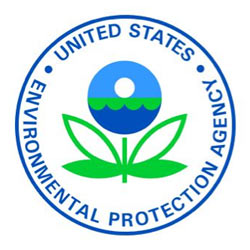Create a free profile to get unlimited access to exclusive videos, sweepstakes, and more!
A Climate Change Op-Ed That Makes Sense. Finally.

I have a tendency to cringe when I hear that a group of people have gotten together and written an op-ed about climate change. Time after time, the articles are ridiculous (then doubling down on the ridiculousness), forehead-smacking examples of denial and cherry-picking.
So I flinched a little when I clicked on the link to a new one ⦠but I was pleasantly surprised. This wasnât in some far-right op-ed section like the Wall Street Journal or the Financial Post. This article was in the gray lady herself, the New York Times, and the title eased my mind immediately: "A Republican Case for Climate Action."
And when I saw it was written by four former administrators of the Environmental Protection Agency with a combined 16 years of experience running that esteemed agency, I was even further assuaged.
But then, after reading it, Iâm conflicted. Their arguments are terrific, but I have a hard time believing theyâll affect any politician whoâs already ideologically dug in.
First, they state clearly and concisely that climate change is real and the ramifications are huge. However, weâve faced environmental crises before and taken the needed action to curb their effects. The ozone hole, river pollution, and acid rain are examples they give where swift, coordinated action hugely mitigated the effects, and even reversed them.
Second, they point out that political gridlock is preventing any real action by Congress. This is another simple fact. Thatâs why President Obamaâs plan, even though it may not be aggressive enough, is still our best bet.
Then they say this [emphasis mine]:
The solutions [to earlier crises] we supported worked, although more must be done. Our rivers no longer burn, and their health continues to improve. The United States led the world when nations came together to phase out ozone-depleting chemicals. Acid rain diminishes each year, thanks to a pioneering, market-based emissions-trading system adopted under the first President Bush in 1990. And despite criticsâ warnings, our economy has continued to grow.
Climate change puts all our progress and our successes at risk. If we could articulate one framework for successful governance, perhaps it should be this: When confronted by a problem, deal with it. Look at the facts, cut through the extraneous, devise a workable solution and get it done.
Thatâs a very persuasive argument to me, but then, I have this predilection to accept reality.
The new Republican mantra is to get the government out of where it doesnât belong (unless itâs your bedroom, which is another matter). But the flip side of that is that the government needs to take action where it does belong. That includes regulating industries that cannot be trusted to regulate themselves, supporting technology and engineering development, and making laws and giving funding to groups that can and will roll up their sleeves and get the job done.
But I donât think the current Congress would be able to get any of that done. The gridlock right now is near total, and it certainly wonât help that Republicans in the House seem to think the EPA is a symbol of all the evils of âbig government.â
But even that is not the biggest problem and why I think the arguments made in the op-ed wonât be effective on politicians.
Itâs actually pretty simple: Too many truculent deniers in the House and Senate refuse to even believe that global warming exists at all. Whether they are so tied to oil money they refuse to see the truth or they have other ideological reasons for clinging to their fantasy, we cannot move forward until these people at least acknowledge that thereâs a problem, and itâs a very, very big one.
But thereâs still hope. Maybe op-eds like this one in the New York Times wonât need to sway those deniers; instead, it needs to get out to the people, because in the end we are the ones who determine whether those reality-deniers in Congress get to stay or go.
And they need to go. If more people can figure that out, then we still have a fighting chance with this.
Tip oâ the poison pen to Jennifer Ouellette on Facebook.


























